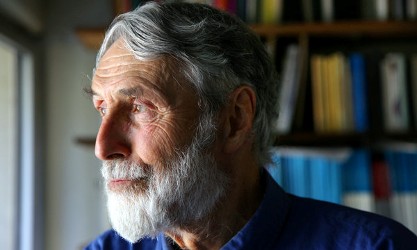-
(b.) - ?1932
Bio/Description
A researcher who worked on the Multics operating system in the 1960s, he edits the RISKS Digest columns for ACM Software Engineering Notes and Communications of the ACM. He founded The Association for Computing Machinery's (ACM SIGSOFT); which focuses on issues related to all aspects of software development and maintenance, with emphasis on requirements, specification and design, software architecture, validation, verification, debugging, software safety, software processes, software management, measurement, user interfaces, configuration management, software engineering environments, and CASE tools. He is also a Fellow of the ACM, IEEE, and AAAS. He studied at Harvard University (1950–1958), gaining a Ph.D. in 1961 after a Fulbright scholarship in Germany (1958–1960). He also has a Doctorate from Darmstadt, and taught at Darmstadt, Stanford, U.C. Berkeley, and the University of Maryland. While at Harvard, he was one of the first programmers to have solo access to his own “personal” computer — at least on weekends. The Mark IV was one of the world’s first stored-program computers, and in 1954 he earned the trust of its designer, Howard Aiken. Every Friday at 5 p.m., he would take over care of the machine from its regular operators. He would have the run of the system for the weekend and wouldn’t leave until Monday morning. He is quoted as saying, “I was the operator, maintainer and guru”. His undergraduate thesis was on computing elliptic integrals, and he used the machine to generate a large number of tables. He also used the Mark IV to do early work in computer music. For a course on computational linguistics, he and other students used a statistical technique to analyze 37 hymn tunes and then create 600 new tunes based on the patterns they discovered. After 10 years at Bell Labs in Murray Hill, New Jersey, in the 1960s, during which he was heavily involved in the Multics development jointly with MIT and Honeywell, he has worked in SRI's Computer Science Lab since September 1971 where he has occupied the same office for four decades. He has remained a voice in the wilderness, tirelessly pointing out that the computer industry has a penchant for repeating the mistakes of the past. Before the RISKS mailing list, he was best known for the Provably Secure Operating System (PSOS). He has long served as moderator of RISKS Digest, and is a member of the ACCURATE project. He has long been one of the nation’s leading specialists in computer security, and early on he predicted that the security flaws that have accompanied the pell-mell explosion of the computer and Internet industries would have disastrous consequences. He was the founding editor of ACM Software Engineering Notes (SEN). He co-founded People for Internet Responsibility (PFIR, http://www.PFIR.org). He has taught courses at Darmstadt, Stanford, U.C. Berkeley, and the University of Maryland and he is known for his publication, Computer-Related Risks, Addison-Wesley/ACM Press, ISBN 0-201-55805-X, 1995.
-
Date of Birth:
1932 -
Gender:
Male -
Noted For:
A leading specialist in computer security, and best known for the Provably Secure Operating System (PSOS) -
Category of Achievement:
-
More Info:


